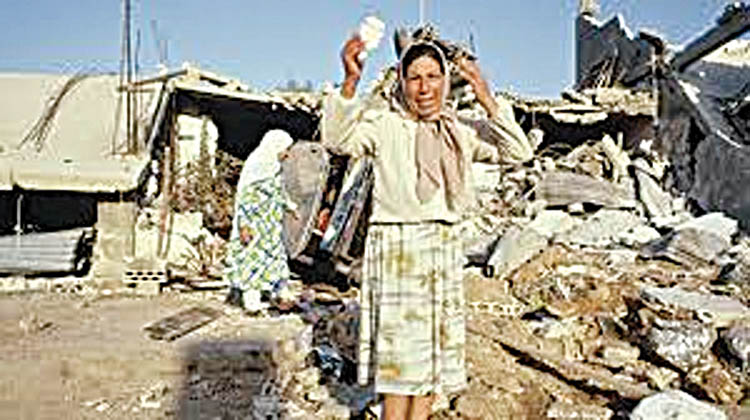Gaza, Sep 18 (Representative) Indiscriminate killings of Palestinian civilians in the Gaza Strip are a continuation of the massacre that occurred in the Palestinian refugee camps of Sabra and Shatila in Beirut in 1982, a senior official of the Democratic Front for the Liberation of Palestine (DFLP), Ali Faisal, told Sputnik on Tuesday. On September 16-17, 1982, militants from the Christian parties Kataeb and Lebanese Forces, in agreement with the Israeli army, which at that time controlled part of Beirut after having invaded Lebanon in June, carried out an ethnic cleansing campaign in the Palestinian refugee camps of Sabra and Shatila. According to various sources, between 700 and 3,500 civilians were killed, including women and children. “What happened in Sabra and Shatila is directly related to what is happening in Gaza now. The only difference is that in Gaza, the resistance is stronger and continues to fight back. Today, more than ever, it has become clear that the only way is confrontation, so that the massacre in Sabra and Shatila is not repeated, that the massacre in camps and settlements in the West Bank stops, and the genocide of the Palestinian people in the Gaza Strip ends,” Faisal said. The Palestinian official accused Israel of attempting over the past three decades to forcefully evict Palestinians from their territory in the Gaza Strip and the Israel-occupied West Bank.
At the end of the last century, the Israeli army persecuted Palestinians both in Lebanon and in Syria in the Golan Heights, Faisal added. “On the 42nd anniversary of the Sabra and Shatila massacre, we see Israel continue the hostile rhetoric it has been using since the massacre, in which 3,260 people were killed … They want to drive our people out of Gaza to Egypt’s Sinai and out of the West Bank to Jordan, and to deprive Palestinian refugees in Syria and Lebanon of their lawful right to return to their homeland,” the official said. At the same time, such attempts at mass killings of civilians never ended the way Israel wanted them to, Faisal said. Israel withdrew its troops from Beirut only three weeks after the Sabra and Shatila massacre, and in 2000, after almost 30 years of confrontation with Hezbollah, the Israeli forces were pulled from the remaining territories of southern Lebanon, except the Chebaa Farms and the Kfarchouba Hills. “Ultimately, the resistance grew stronger in Palestine, Lebanon, Syria, Iraq and Yemen. Even the United States weighs its decision ten times before directly getting involved in a war on the side of Israel.
In Tel Aviv, they are talking about their intentions to clean up southern Lebanon, but so far they have achieved little on the ground. They have also been struggling for 11 months to achieve their idea of creating Greater Israel and forcing Gazans to leave their cities and camps,” Faisal said. On October 7, 2023, Israel was subjected to an unprecedented rocket attack from the Gaza Strip. In addition, fighters of Palestinian movement Hamas infiltrated the border areas, opened fire on the military and civilians and took hostages. Israeli authorities say that about 1,200 people were killed during the raid. The Israel Defense Forces launched Operation Iron Swords in the Gaza Strip and announced a complete blockade of the enclave. The enclave’s health ministry said that the death toll from Israeli strikes on the Gaza Strip since October 7 had exceeded 41,000.

